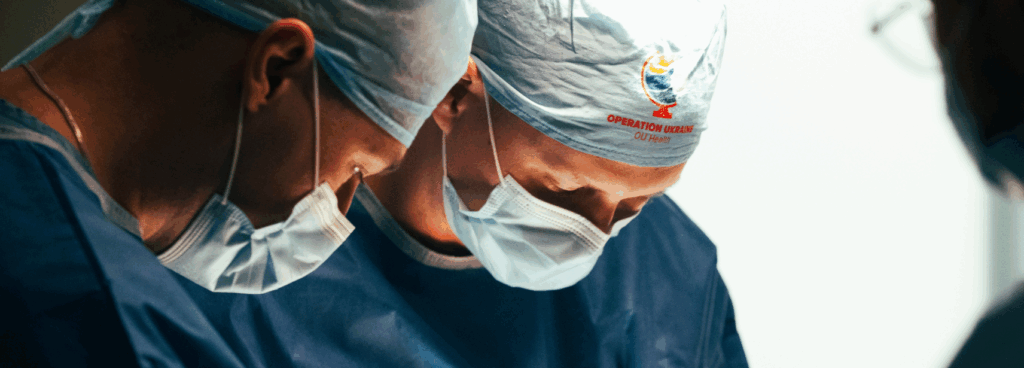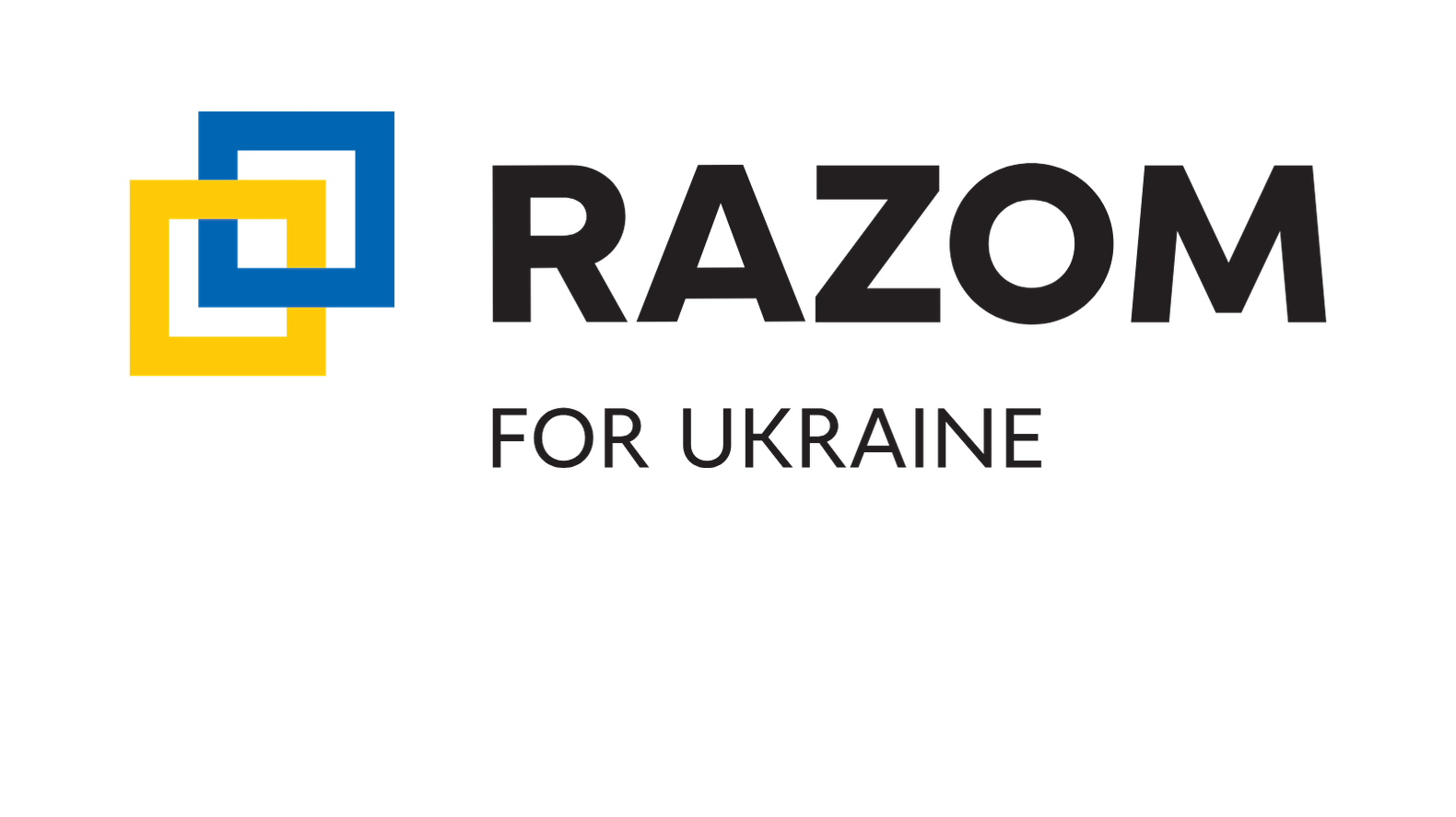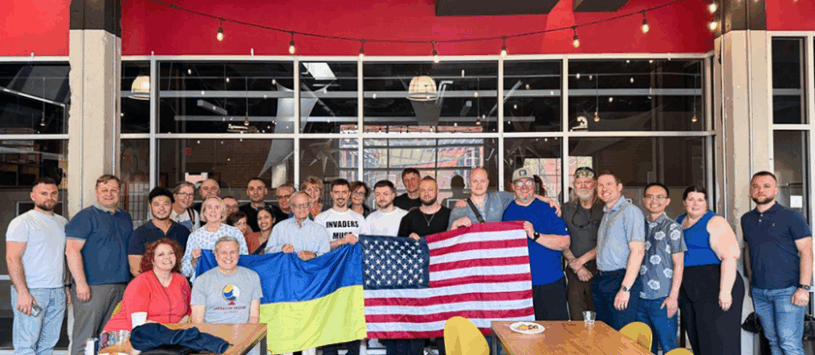In the ever-evolving world of medicine, the exchange of knowledge is not just beneficial—it is essential to advancing patient care, driving innovation, and saving lives. Nowhere is it more true than in Ukraine, where the demands of wartime medicine include the full spectrum of patient care from rapid response for complex wounds and multiple life-threatening injuries, to patient stabilization, as well as reconstructive and rehabilitative care.
Paired with limited access to advanced subspecialty training in fields like neurosurgery, reconstructive, and plastic surgery, this creates a gap between the rising demand for complex procedures and the opportunity for Ukrainian surgeons to deepen and expand their expertise.
To provide support in alleviating this issue, the Razom Health program team launched its Co-Pilot Project in 2016 after the visit of Dr. Luke Tomycz to Ukraine. Having observed the needs of Ukrainian patients and the challenges in Ukrainian surgeon’s access to the newest surgical knowledge, Dr. Tomycz was resolved to engage the expertise of US surgeons to offer in-person trainings to their Ukrainian colleagues. Since then, numerous North American medical professional (!) organizations and initiatives have reached out to Razom and Co-Pilot Project expressing desire to help with performing complex surgeries and training Ukrainian doctors. Since the beginning of the project, Co-Pilot has implemented observerships in leading U.S. hospitals as part of its surgical training initiative. Between 2017 and 2022, 8 such placements were facilitated. Combining collaborative surgeries with international surgeons and observership programs helps bridge the gap in Ukraine’s short-term residency model—2 years compared to 4–7 years in the U.S. and Europe—and compensates for the absence of cadaver labs and surgical simulation training in Ukrainian residency programs. This approach is referred to as Co-Pilot’s “light residency.”
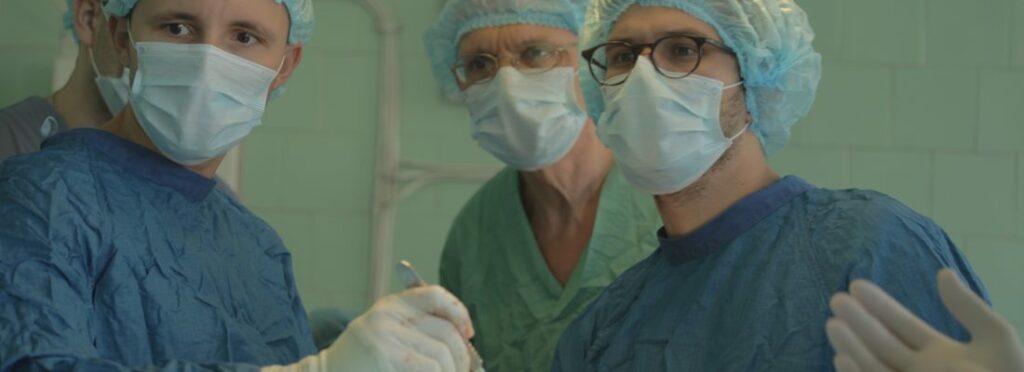
In 2023, a formal partnership with the University of Oklahoma was launched, with three maxillofacial surgeons participating and the expansion into a long-term program covering four specialties: neurosurgery, orthopedics, oculoplastics, and head and neck surgery. Additionally, Co-Pilot organized observerships for Ukrainian surgeons at Harvard Medical School, Mount Sinai, MedStar Washington Hospital, the University of Cincinnati, and several private clinics. These initiatives have been recognized at the inaugural Orden of Saint Panteleimon Awards, a recognition named after the Patron Saint of healers and helpers.
The Co-Pilot Project has made a major impact by training Ukrainian surgeons through hands-on collaboration with international experts. But for many doctors, one key piece was still missing: the chance to see how advanced surgical tools are actually used in practice – not just as individual instruments, but within real-world clinical workflows. Since the start of the full-scale invasion, Ukraine has received a wide range of donated medical equipment, but without the opportunity to observe how these tools are used together in high-functioning settings, much of their potential remains untapped. “Because of the war, a lot of equipment came to us, and a lot of instruments, and to see how to fully use it is a big help for us, which will allow us to help our defenders and civilians much better,” shared Dr. Yurii Lazarenko of the Central Regional Military Medical Center. Co-Pilot is helping close that gap – giving Ukrainian surgeons the chance to train in environments where technique, equipment, and teamwork come together in practice.
Now, thanks to the Co-Pilot Project, Ukrainian surgeons can receive hands-on training on the newest approaches in surgical care and correct utilization of imported medical equipment through the observership initiative. The most recent of such observerships brought nine Ukrainian surgeons to Oklahoma City to spend one month with colleagues at OU Health under the program Operation Ukraine. Surgeons from Lviv, Kyiv, Vinnytsia, Odesa, Kharkiv, and Zaporizhzhia—representing four different medical specialties—were carefully selected.
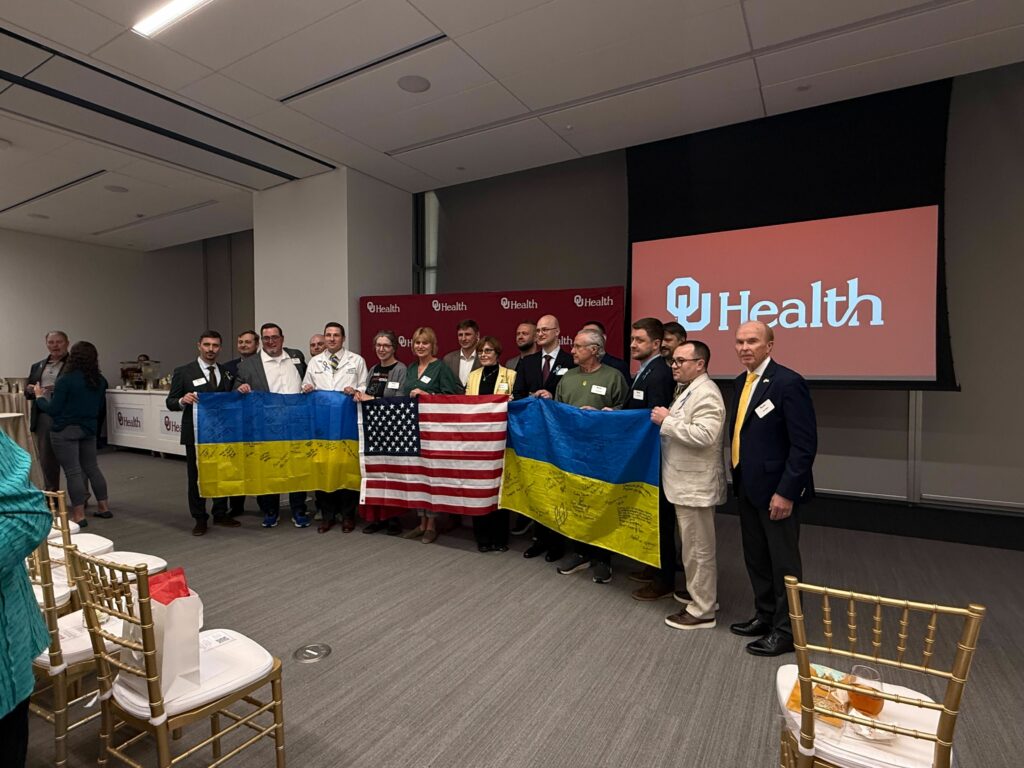
This is the fifth cohort organized under the Operation Ukraine observership program at OU Health in Oklahoma City, offering Ukrainian surgeons the opportunity to learn advanced surgical techniques and collaborate with American colleagues.
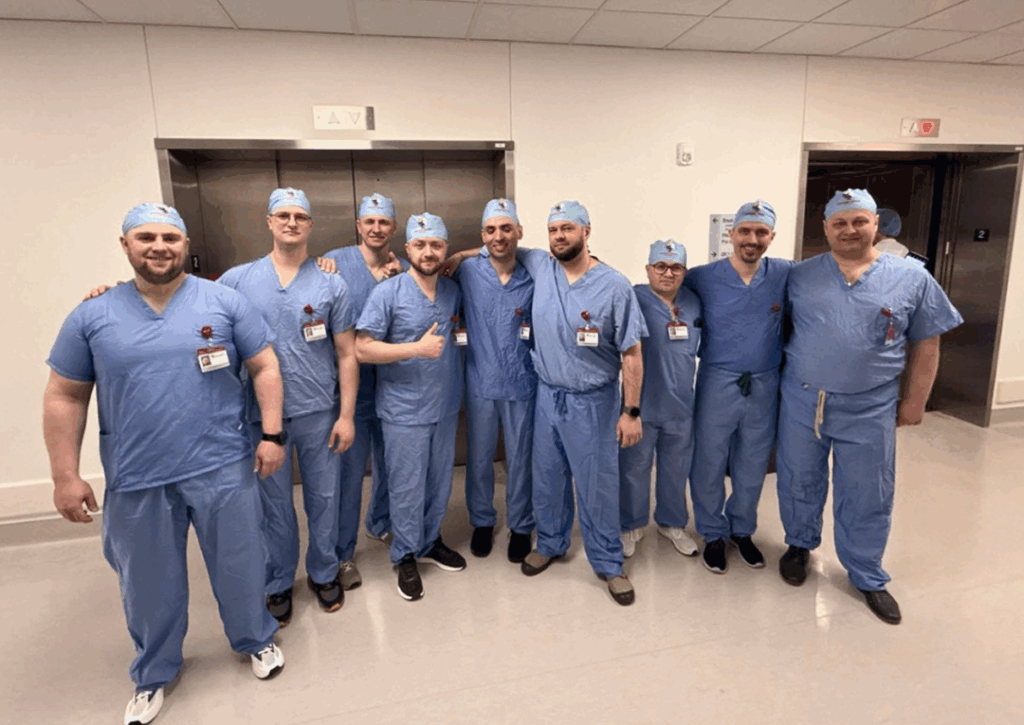
Razom played a key role in making this observership possible by supporting travel, visa assistance, stipends, and program logistics. The team also helped select candidates through a competitive application process and awarded a grant to OU Health to help cover key training and administrative costs. With an average cost of $6,000 per participant, this initiative depends on donor support to continue creating high-impact training experiences for Ukrainian surgeons.
The observership at OU Health is unlike any other program of this kind in the US, in that the Ukrainian surgeons are able to scrub in and assist in surgeries, learning the skills in instrument usage, operating room dynamics, and innovative techniques. “We don’t have such an opportunity in Ukraine,” Dr. Andrii Kovalov, a Ukrainian Surgeon said. “This is, I think, one of the best opportunities to get the hard skills before you get that access to the patients.”
At the heart of the Operation Ukraine program is Dr. Mark Mims who has spearheaded this initiative within OU Health. Dr. Mims has worked with the state medical board, hospital administration and leadership team to structure the program in such a way as to permit the vital “scrubbing in and assisting” element for Ukrainian surgeons, allowing them to gain the necessary skills in a drastically compressed time frame. “With our Operation Ukraine program at OU Health, our hope is to help train the next generation of Ukrainian surgeons,” Dr. Mark Mims with OU Health said. “We want the surgeons who come through our program to return home not only with advanced skills to care for their patients, but also with the ability to pass that knowledge on — building a stronger future for healthcare in Ukraine.”
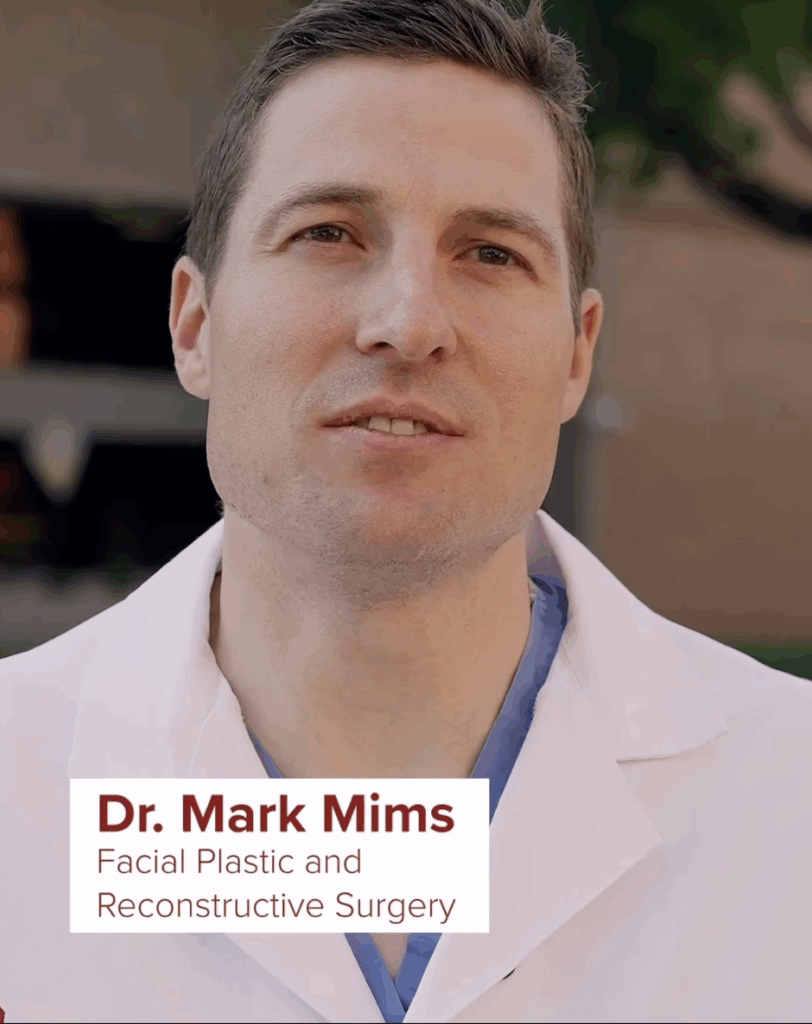
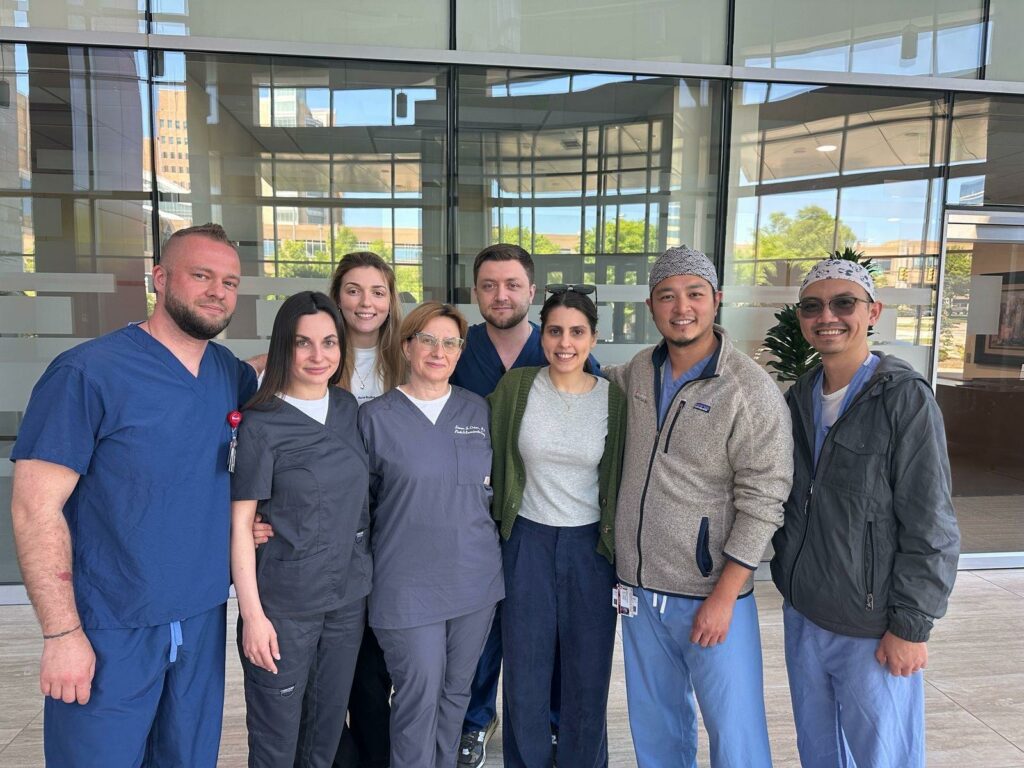
Once back in Ukraine, the surgeons apply what they’ve learned to treat some of the war’s most complex injuries. They also train their colleagues, multiplying the impact of the observership and helping to build a stronger, more resilient surgical community. As Dr. Vitalii Panchenko of Lviv Military Hospital shared, “This experience changed everything. I now have the skills and confidence to perform complex surgeries that once felt impossible.”
This work is made possible through the partnerships with doctors, hospitals, and thanks to the generous contributions from our donors. If you are interested in supporting more opportunities for learning and connection for Ukrainian doctors, you can make a donation below.
